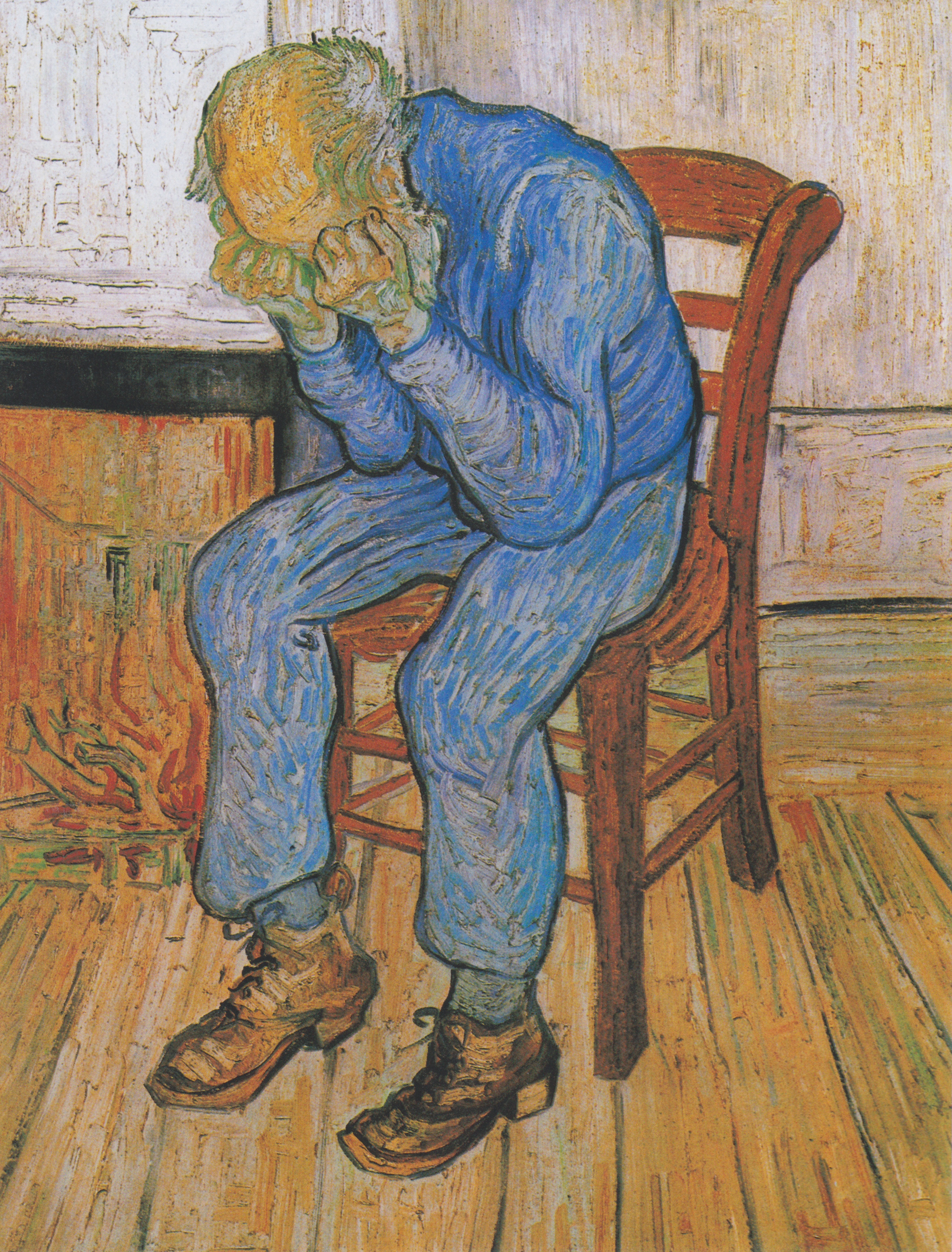Major depressive disorder
(Redirected from Clinical depression)
Editor-In-Chief: Prab R Tumpati, MD
Obesity, Sleep & Internal medicine
Founder, WikiMD Wellnesspedia &
W8MD medical weight loss NYC and sleep center NYC
| Major depressive disorder | |
|---|---|

| |
| Synonyms | Clinical depression, major depression, unipolar depression |
| Pronounce | N/A |
| Specialty | N/A |
| Symptoms | Low mood, low self-esteem, loss of interest or pleasure in normally enjoyable activities |
| Complications | Suicide, self-harm |
| Onset | Typically between ages 20 and 30, with a later peak between 30 and 40 |
| Duration | At least 2 weeks |
| Types | N/A |
| Causes | Genetics, environmental factors, psychological factors |
| Risks | Family history, major life changes, certain medications, chronic health problems |
| Diagnosis | Based on patient history, mental status examination |
| Differential diagnosis | Bipolar disorder, dysthymia, anxiety disorders, substance use disorder |
| Prevention | N/A |
| Treatment | Psychotherapy, antidepressants, electroconvulsive therapy |
| Medication | SSRIs, SNRIs, tricyclic antidepressants, MAO inhibitors |
| Prognosis | N/A |
| Frequency | Affects approximately 7% of the population in a given year |
| Deaths | Approximately 800,000 suicides per year worldwide |
Major Depressive Disorder (MDD), also known simply as depression, is a mental disorder characterized by at least two weeks of pervasive sadness or a lack of interest in activities, accompanied by additional psychological or physical symptoms. These symptoms can include changes in sleep patterns, appetite, energy level, concentration, daily behavior, or self-esteem. Depression can also be associated with thoughts of suicide.
Symptoms and Signs[edit | edit source]
The primary symptoms of Major Depressive Disorder include persistent sadness, a feeling of emptiness, and anhedonia – a lack of pleasure in normally enjoyable activities. Other symptoms may involve feelings of worthlessness or guilt, irritability, fatigue, changes in appetite and weight, difficulty sleeping or oversleeping, psychomotor agitation or retardation, difficulty concentrating, and recurrent thoughts of death or suicide.
Causes[edit | edit source]
The etiology of Major Depressive Disorder is multifactorial, with contributions from genetic, biological, environmental, and psychological factors. Genetics play a significant role, with heritability estimates ranging from 30% to 40%. Neurobiological theories suggest alterations in neurotransmitter levels, including serotonin, norepinephrine, and dopamine, are involved. Environmental factors, such as trauma or stress, and psychological factors, like personality traits or coping mechanisms, also significantly contribute to the development of MDD.
Diagnosis[edit | edit source]
Diagnosis of Major Depressive Disorder is based on the patient's self-reported experiences, behavior reported by relatives or friends, and a mental status examination. There are no laboratory tests for MDD, but tests may be conducted to rule out other conditions that may cause similar symptoms. The Diagnostic and Statistical Manual of Mental Disorders (DSM-5) criteria are commonly used for diagnosis, which require the presence of five or more symptoms over a two-week period, with at least one of the symptoms being either persistent sadness or anhedonia.
Treatment[edit | edit source]
Treatment for Major Depressive Disorder may involve a combination of psychotherapy, antidepressant medication, and, in some severe cases, electroconvulsive therapy (ECT) or other brain stimulation therapies. Cognitive-behavioral therapy (CBT) and interpersonal therapy (IPT) are among the most effective forms of psychotherapy for MDD. Selective serotonin reuptake inhibitors (SSRIs) and serotonin-norepinephrine reuptake inhibitors (SNRIs) are commonly prescribed antidepressants. Treatment plans should be tailored to the individual, taking into account the severity of symptoms, previous treatment history, and the patient's preferences.
Epidemiology[edit | edit source]
Major Depressive Disorder is one of the most common mental disorders worldwide. It affects millions of adults and adolescents, with a higher prevalence among women. The disorder can develop at any age, but the median age of onset is in the late 20s.
Prognosis[edit | edit source]
The prognosis for individuals with Major Depressive Disorder varies. Some individuals experience a single depressive episode and fully recover, while others may have recurrent episodes or chronic depression. Early treatment and ongoing management can improve the long-term outlook for many people with MDD.
See Also[edit | edit source]
Search WikiMD
Ad.Tired of being Overweight? Try W8MD's physician weight loss program.
Semaglutide (Ozempic / Wegovy and Tirzepatide (Mounjaro / Zepbound) available.
Advertise on WikiMD
|
WikiMD's Wellness Encyclopedia |
| Let Food Be Thy Medicine Medicine Thy Food - Hippocrates |
Translate this page: - East Asian
中文,
日本,
한국어,
South Asian
हिन्दी,
தமிழ்,
తెలుగు,
Urdu,
ಕನ್ನಡ,
Southeast Asian
Indonesian,
Vietnamese,
Thai,
မြန်မာဘာသာ,
বাংলা
European
español,
Deutsch,
français,
Greek,
português do Brasil,
polski,
română,
русский,
Nederlands,
norsk,
svenska,
suomi,
Italian
Middle Eastern & African
عربى,
Turkish,
Persian,
Hebrew,
Afrikaans,
isiZulu,
Kiswahili,
Other
Bulgarian,
Hungarian,
Czech,
Swedish,
മലയാളം,
मराठी,
ਪੰਜਾਬੀ,
ગુજરાતી,
Portuguese,
Ukrainian
Medical Disclaimer: WikiMD is not a substitute for professional medical advice. The information on WikiMD is provided as an information resource only, may be incorrect, outdated or misleading, and is not to be used or relied on for any diagnostic or treatment purposes. Please consult your health care provider before making any healthcare decisions or for guidance about a specific medical condition. WikiMD expressly disclaims responsibility, and shall have no liability, for any damages, loss, injury, or liability whatsoever suffered as a result of your reliance on the information contained in this site. By visiting this site you agree to the foregoing terms and conditions, which may from time to time be changed or supplemented by WikiMD. If you do not agree to the foregoing terms and conditions, you should not enter or use this site. See full disclaimer.
Credits:Most images are courtesy of Wikimedia commons, and templates, categories Wikipedia, licensed under CC BY SA or similar.
Contributors: Prab R. Tumpati, MD









